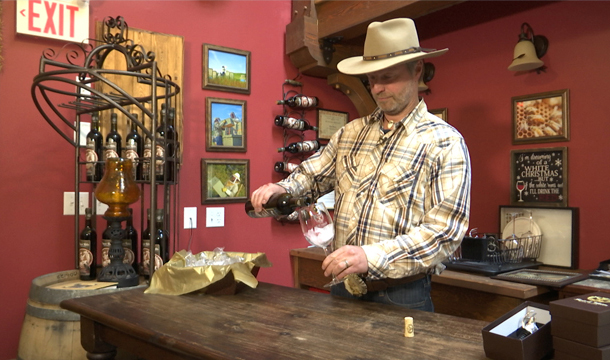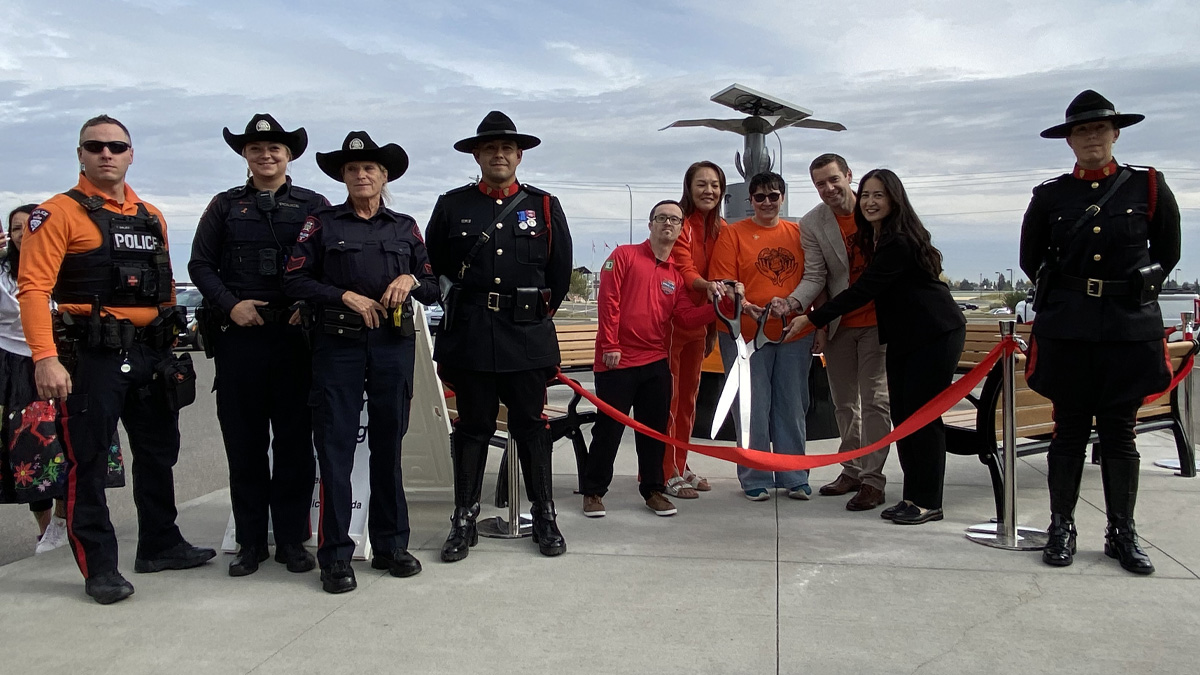Nov 7, 2025
Honey winery buzzes with activity in April
It’s finally spring, and for many of us, that means planting gardens, building decks or, if you’re a successful bee farmer and wine maker, expanding your honey winery.
Meet Hugo Bonjean, the proud owner of Spirit Hill Winery near Turner Valley, Alberta. When Hugo and his family first started their winery five years ago, it was just a small dream of Hugo and his family to live off the land, connect with nature and carry on the generations-long family tradition of wine making that began in France.
Of course, with no grapes to be found in Alberta, Hugo has had to incorporate some good old fashioned ingenuity and creativity. His family history taught him what ingredients he needed to make wine; he just had to look a little harder to find them in the prairies.
“We use our local honey, our local berries, and our local flowers to create Alberta wines with true Alberta flavours and character,” explains Bonjean.
That’s right; wine, without grapes. And in the process, he’s created some award-winning honey wines (and a delicious sangria) that have made their small dream a big reality.
As demand for their product has grown, recently reaching as far as Japan, Spirit Hills has had to grow with it. Last year they added on to their winery, and this year they hope to grow even more.
A pipeline between his home and business
Complicating the matter somewhat was the fact that buried between his home and his business is a natural gas transmission pipeline owned by TransCanada. For the expansion he was imagining, he would need to dig on his property, potentially coming close to the pipeline right-of-way.
As one of more than 90,000 landowners we work with across North America, Bonjean was aware of the possible dangers of digging near pipelines, and so he called TransCanada and Alberta One Call, his local underground utility organization. Within days, crews were out identifying and marking the underground facilities running through his property.
“I have a great relationship with TransCanada,” says Bonjean. “Once I knew I wanted to do some work, I called the number and they came, marked my lines and basically camped out during the entire digging process to make sure it was done safely.”
This year, Hugo wants to continue growing, and he’s already put the call in to start the process all over again.
Considering it’s a free service, Bonjean calls it a “no-brainer”.
“That’s my home,” he says, gesturing to the ranch house to his right, “and that’s my winery, and the pipeline runs right in between.”
“I don’t want to put a post on top of a line and, you know, kind of create a danger for the entire community.”
Springtime projects pose hidden dangers
Considering April is National Dig Safe Month, that’s the kind of attitude that utility safety groups like the Common Ground Alliance and Alberta One Call want to hear more of, and remind people that whether the project is big or small, it is important to click or call before any digging begins.
In 2015, over 275,000 damages to underground utilities in the U.S. and Canada were reported to the Common Ground Alliance, and shockingly, most, if not all, of these were preventable. Many people don’t even realize what kind of utilities are running underneath the ground they walk on every day.
Dig Safe Month aims to change that by spreading awareness of the free resources available to people to help them avoid potential injury, damages, or interruptions to vital services that keep their families safe and their businesses running.
For more information on Spirit Hills Winery or to find where to purchase their products, visit SpiritHillsWinery.com.




